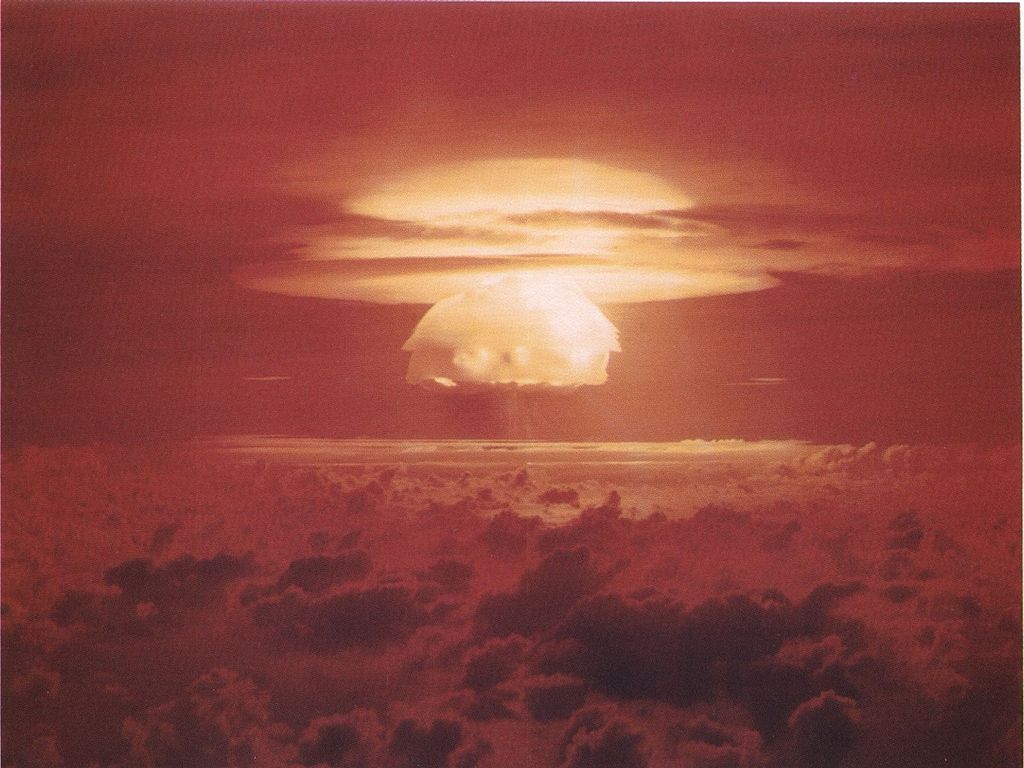Christopher Loeak is president of the Marshall Islands. This moving speech was delivered in a video address to world leaders in the week before the UN’s climate summit on 23 September, 2012 and was re-aired on 18 September 2014, a week before the upcoming summit in New York:
Out here in the middle of the Pacific Ocean, climate change has arrived. In the last year alone, my country has suffered through unprecedented droughts in the north, and the biggest ever king tides in the south; and we have watched the most devastating typhoons in history leave a trail of death and destruction across the region.
Lying just two meters above sea level, my atoll nation stands at the frontline in the battle against climate change. The beaches of Buoj where I use [sic] to fish as a boy are already under water, and the fresh water we need to grow our food gets saltier every day. As scientists had predicted, some of our islands have already completely disappeared, gone forever under the ever-rising waves. For the Marshall Islands and our friends in the Pacific, this is already a full-blown climate emergency.
Some tell us that we should begin planning to leave. But how can we? And why should we? These islands are our home. They hold our history, our heritage and our hopes for the future. Are the world’s polluters asking us to give up our language, our culture, and our national identity? We are not prepared to do that – we will stay and fight. If the water comes, it comes.
Brick by brick, I built the seawall behind me with my own hands. But even this is barely enough to protect my family from the encroaching waves. Last year, after returning from a visit to the United Nations in New York, I was so shocked by the damage from the rising tides that I added another foot of bricks to the wall.
In the Marshall Islands we have a saying – “Wa kuk wa jimer”. It means that we are all in the same boat together. What is happening here is a mere preview of the havoc that awaits if we continue with our polluting ways. If my country goes, others will surely follow. We are the canary in the coalmine.
The climate crisis is forcing us to take matters into our own hands, both at home and on the international stage. Last year the Marshall Islands hosted the largest ever Pacific Islands Forum Leaders’ meeting in Majuro, and it remains one of the proudest moments of my Presidency. The big outcome was the Majuro Declaration for Climate Leadership, a powerful message from the world’s most vulnerable countries to the big emitters that surround us that the time for talk is over, and the time for action is now. Our efforts had an impact with the United States, the European Union, the United Kingdom, Mexico, and Japan all committing to be climate leaders and to do more to tackle climate change.
At this time last year, I presented the Declaration to UN Secretary-General Ban Ki-moon, and promised to bring the spirit of Majuro to his Climate Change Leaders’ Summit in New York, which is now less than a week away. The Summit comes not a moment too soon. It is the first gathering of world leaders on climate change in nearly five years, and just over a year before our deadline to sign a new global treaty on climate change in Paris at the end of 2015.
Paris cannot be another Copenhagen. The world has changed too much. The science is more alarming, the impacts more severe, the economics more compelling, and the politics more potent. Even the world’s two biggest polluters – China and the United States – are working together to find a pathway to a new global agreement.
But there are still some that seek to slow us down. To my fellow world leaders I say “next week’s Summit is a chance for all of us to be the leaders we were elected to be”.We must send a strong and united message to the world – and to the people that we represent – that we are ready to do a deal next year. And to avoid the worst impacts of a warmer world, this new deal must capture a vision for a carbon-free world by the middle of the century. Without it, no seawall will be high enough to save my country.
Together, we must find the courage to rise to this challenge. It is time to build the greatest climate change alliance the world has ever seen. My people are counting on it, as is all of humanity.



_(Polynesia_centered).svg.png)

